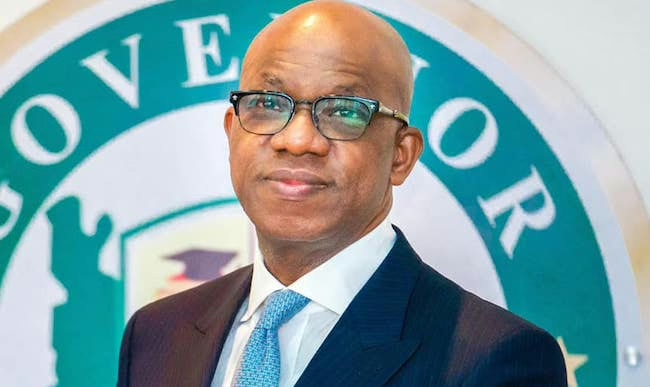Ogun State Governor Dapo Abiodun has urged a collective effort to combat poverty and stimulate economic growth in Nigeria, emphasizing that the responsibility cannot rest solely on the government’s shoulders.
Addressing attendees at the 12th Annual Public Lecture of The Foursquare Gospel Church Nigeria, held at The Marquee, Harbour Point, Victoria Island, Lagos, Abiodun highlighted the importance of partnership among government bodies, religious organizations, the private sector, and citizens to effectively address poverty and promote inclusive development.
“Governance is a shared responsibility; it cannot be managed by government alone. The church has exemplified this through its impactful initiatives,” the governor remarked.
He commended The Foursquare Gospel Church for going beyond spiritual leadership by investing in education, healthcare, humanitarian efforts, and economic empowerment programs that have transformed many lives across Nigeria.
“Addressing poverty demands economic resilience built on inclusive growth, ensuring opportunities reach all segments of society, particularly the marginalized,” Abiodun explained.
“Economic progress and stability are inseparable. Without stability, economic gains are fleeting; without development, poverty remains entrenched. Leaders across government, religious institutions, and the private sector must unite to disrupt this cycle. Poverty is more than a statistic-it is a lived experience that calls for compassion and action,” he added.
The event, themed “Poverty Alleviation, Economic Development and Stability of the Nigerian Economy,” served as a vital forum for discussing strategies to reduce poverty and advance national development.
In his opening remarks, Rev. Sam Aboyeji, General Overseer of The Foursquare Gospel Church Nigeria, echoed the call for unity in tackling poverty, describing it as one of Nigeria’s most pressing challenges.
“Poverty remains a formidable obstacle for Nigerians, and overcoming it requires a united front involving government, faith-based groups, dedicated agencies, and individuals,” he stated.
RELATED: Aviation unions accuse ground handlers of undercutting prices, petition NCAA
Aboyeji highlighted the church’s over 70 years of continuous service in Nigeria, viewing its role in national development as a “sacred responsibility.” He noted that the annual public lecture is designed to foster policy discussions and encourage solutions to the country’s challenges.
Delivering the keynote address, Dr. Doyin Salami, Senior Fellow and Associate Professor at Lagos Business School, presented a candid assessment of Nigeria’s economic condition, warning that the current growth rate of 3.2% is insufficient to significantly reduce poverty.
“Data indicates that investment levels in Nigeria are inadequate to drive meaningful growth. We must learn from past errors and prioritize investments that genuinely stimulate and sustain development,” Salami emphasized.
He stressed that Nigeria requires a steady annual growth rate of at least 6.5% over ten years to make a substantial impact on poverty reduction.
Salami also pointed to a pivotal moment in the 1990s when Nigeria fell behind China in poverty reduction metrics. “In 1992, Nigeria was ahead of China in poverty indicators, but by 1996, China had surged ahead while Nigeria lagged,” he observed.
He cautioned that Nigeria’s increasing reliance on the services sector at the expense of industrialization is accelerating de-industrialization and jeopardizing the country’s long-term economic prospects.

















